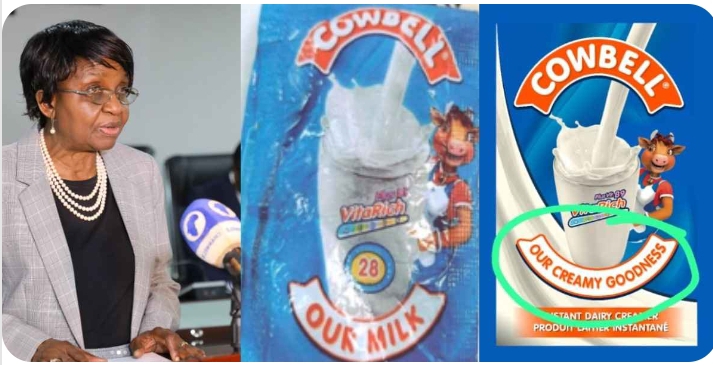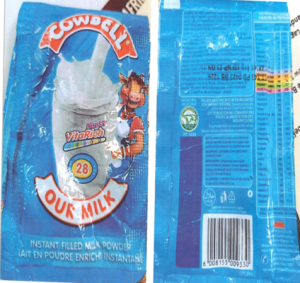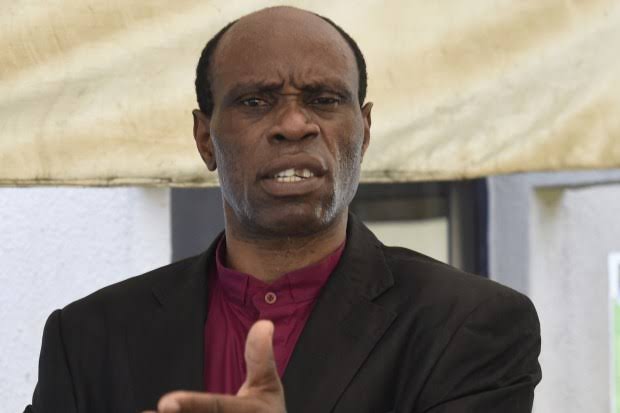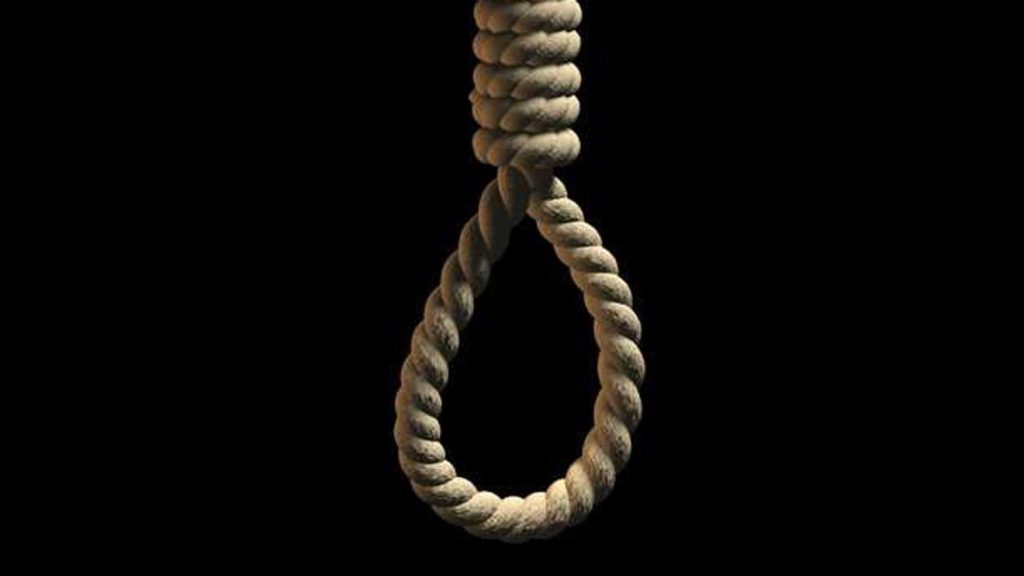News
Technology a Catalyst In Productivity And Growth In Agribusiness
JOHANNESBURG, South Africa, May 31, 2016 Agriculture is currently standing on the edge of a second green revolution.
This revolution will entail fundamental shifts in how the agricultural sector utilises and implements innovative technology.
This is to improve output in a sustainable manner and address the need for greater food security globally.
“Currently, there is a second green revolution underway.
There is a desperate need for food security and therefore higher agricultural output without compromising resources in the process,” says Frans Weilbach, Agribusiness Industry Leader for PwC Africa.
“Advances in technology and innovation are the key to the future of agriculture as agribusinesses strive to feed an increasing population.
Against a background of climate change, scarcity of water and a host of environmental concerns.
“Innovative technology and advancements in productivity are becoming increasingly important as pressure mounts on food systems,” says Weilbach.
“The global population is growing rapidly and the climate is ever-changing.
“Agribusinesses are making changes to go high-tech.
From data-gathering drones to artificial intelligence farming, technology is making the agricultural sector more precise and efficient as agribusinesses push for increased profits.”
The agricultural sector is regarded as one of the most critical industries for the African continent.
This is due to economic potential and is projected to become a US$1trillion industry in sub-Saharan Africa (SSA) by 2030.
More than half (58.8%) of survey respondents consider investment in Africa as an opportunity for their businesses to expand.
The top four countries they are planning to invest in are Zambia, Botswana, Tanzania and South Africa.
PwC’s Agribusinesses Insights Survey 2016 was carried out among a group of African agribusinesses that are mainly focused on delivering agricultural and related services to primary producers.
The survey focuses on the strategic challenges that agribusiness leaders face in their businesses.
While on the other hand it highlights areas where technological innovation is already taking place and where it can make a difference in the future.
In addition, the survey provides viewpoints on the agricultural sector in Nigeria and Kenya.
Survey respondents, however are less optimistic about revenue growth over the next 12 months compared with their expectations a year ago.
The majority of agribusinesses (46.2%) are expecting revenue growth of between 0-5%, and 26.9% of businesses expect it to be between 6-10%.
The biggest challenges to business growth cited by business leaders were access to technology, the scarcity of natural resources and supply-side uncertainties.
African agribusinesses also feel that there is a long way to go toward better support from government in the sector.
For example, businesses are of the view that government does not offer sufficient tax incentives to ensure international competitiveness.
Furthermore, they say government is not doing enough to develop skilled workers in the sector.
Edward Kerich, PwC Director in Kenya, says: “Kenya relies heavily on the agricultural sector as the mainstay of its economy, with agriculture contributing 29% of GDP.
Kenya is SSA’s leading tea exporter and one of the world’s largest black tea producers.
A significant development in the agricultural sector is growth in the number of privately owned tea factories outside of those owned by the KTDA and the large multinationals in the country.
The contribution of the tea industry to the Kenyan economy is expected to continue growing.
And the benefits realised will be enhanced as some factories move to cheaper renewable energy such as hydropower production.”
Rasheed Rahji, PwC Partner in Nigeria, says: “Agriculture contributed 24.18% to real GDP in Nigeria in Q4 2015.
This is mainly due to mechanised farming and to other activities in the agribusiness value chain.
It is being fuelled by the Government owing to its focus on agribusiness as a driver for poverty alleviation, and in part by continued investment by commercial farmers.
Given the fall in the international price of crude oil over the past 18 months, the Government has encouraged agricultural exports as an alternative foreign exchange earner.
A number of challenges in the agricultural sector remain to be addressed.
These include inadequate infrastructure, access to credit, and the training and education of smallholder farmers in modern farming techniques.
Adequate focus on these matters would certainly assist in improving Nigeria’s food security, grow its GDP and increase its foreign earnings.”
African agribusinesses also indicated they have maintained focus on risk management.
With the majority of survey respondents (95.2%) periodically conducting a formal risk assessment.
It is also positive to note that 53.8% of respondents prepare an integrated report.
Human resources (HR) models and processes are beginning to evolve, with more emphasis being placed on technology to improve networks and data.
Agribusinesses are looking to their HR teams to provide not only basic services and transactional activities but also strategic insights and workforce intelligence.
Businesses indicated internal HR capacity, labour unrest, employee turnover, and communication between employees and management as the most challenging human resources matters.
Although there is widespread consensus on the reality of global climate change, much uncertainty still exists.
Especially when it comes to the exact measurable impact of changes in climatic conditions on agriculture and food security.
The majority of agribusinesses are of the view that climate change will have a significant impact on SSA agriculture in the future.
41.2% indicated that there will be a significant impact in the short term and 35.3% that there will be an impact over the next 20 years.
In addition, 35.3% of agribusiness leaders indicated that they are considering investment in renewable energy, while 29.4% have already done so.
The main forms of renewable energy that agribusinesses have invested in are solar energy and biogas.
Increased pressure on the profitability of farming and agricultural business activities is forcing the agricultural sector to be an early adopter of new technologies.
In order that it may improve the productivity and profitability of the sector.
Survey respondents noted the availability of real-time data as the biggest opportunity for technological innovation.
In addition drones are fast becoming a real green-tech tool.
Global research also shows that artificial intelligence (AI) farming will be the main enabling factor in increasing the world’s agricultural production capacity to meet the demands of the growing population.
This goes hand in hand with precision farming and other technology trends.
The majority of survey respondents (76.5%) agree that AI farming will make a major contribution to increasing capacity in Africa over the next ten years.
Only 47% of businesses had already invested or plan to invest in the development of AI farming capabilities for primary production.
This could be due to the cost of implementation, which was noted as the biggest restriction to the use of AI farming capabilities (64.7%).
All agribusinesses indicated that they felt a responsibility towards food security.
Food quality and safety is the one pillar of food security that respondents indicated they can contribute towards the most followed by availability and affordability.
It is also positive to note that all businesses indicated their agribusinesses contribute towards corporate social investment (CSI).
The top three areas of investment are: healthcare, education and personal upliftment.
“It is predicted that technological innovation will act as a catalyst in lifting agribusiness to the next level in Africa.
The winners will be those agribusinesses that seize the opportunity to create new opportunities through technology – they will be able to reach their strategic goals faster and more efficiently,” concludes Weilbach.
News
‘Gate of Hell’ Will Open on Gaza’– Israeli Defence Issues Finally Warning to Hamas

Israeli Defence Minister Israel Katz has issued a fierce warning to Hamas, declaring that Gaza City will face complete destruction if the militant group refuses to accept Israel’s conditions for ending the war.
Katz, in a statement shared on social media on Friday, August 22, 2025, used sharp words to describe Israel’s next steps.
He said the “gates of hell” would open on Hamas if it failed to disarm and release all hostages.
“Soon, the gates of hell will open upon the heads of Hamas’s murderers and rapists in Gaza until they agree to Israel’s conditions,” Katz wrote.
He added that if Hamas refused, Gaza City would suffer the same fate as Rafah and Beit Hanoun, two cities previously flattened by Israeli offensives.
His comments mark one of Israel’s strongest warnings since the escalation of the conflict.
The minister’s remarks came only hours after Prime Minister Benjamin Netanyahu announced that negotiations had been ordered to free the hostages held in Gaza.
Netanyahu explained in a video address that Israel’s military operation in Gaza City would not stop during talks. “Defeating Hamas and releasing our hostages go hand in hand,” he said.
The prime minister also confirmed the mobilisation of 60,000 reservists to join the offensive.
Meanwhile, mediators have been waiting for Israel’s response to a ceasefire plan that Hamas accepted earlier in the week.
The proposal suggests a phased release of hostages, but Israel insists that only a deal ensuring the release of all captives at once will be accepted.
Israel’s hardened stance has sparked growing concern worldwide.
International leaders have cautioned that an expanded assault on Gaza City could worsen the humanitarian disaster already unfolding in the region.
Gaza’s health ministry says more than 62,000 Palestinians, most of them civilians, have been killed since Israel’s military campaign began.
The United Nations considers these figures credible.
The war was triggered by Hamas’s October 2023 attack, which left 1,219 people dead in Israel, mostly civilians.
Since then, the conflict has intensified, with both sides showing little sign of compromise.
With Katz’s threat to turn Gaza City into rubble if demands are not met, the conflict appears to be entering an even deadlier stage.
The international community continues to press for a ceasefire, but Israel’s leadership insists that victory over Hamas and the release of all hostages remain its top priorities.
Health
NAFDAC Raises Alarm as Fake Cowbell Milk Floods Nigerian Markets

The National Agency for Food and Drug Administration and Control (NAFDAC) has raised alarm over the circulation of fake Cowbell “Our Milk” 12g sachets in Nigeria.
In a statement issued on Friday, August 22, 2025, the agency explained that the counterfeit milk is packaged to look like the discontinued Cowbell “Our Milk,” but it is unauthorised and unsafe for consumption.


NAFDAC clarified that Promasidor Nigeria Ltd, the authentic manufacturer, stopped producing Cowbell “Our Milk” in September 2023.
The product was replaced with Cowbell “Our Creamy Goodness.” Despite this, fake versions of the old product have found their way into Nigerian markets.

Picture of Fake cowbell milk.
The counterfeit sachets bear the brand name, NAFDAC registration number, and familiar packaging design, making them difficult for unsuspecting buyers to identify as fake.
Health Dangers of Fake Cowbell Milk
NAFDAC warned that the consumption of these counterfeit products poses serious health risks.
Fake milk could contain toxic chemicals, harmful additives, or diluted ingredients that endanger human health.
Infants, children, pregnant women, and the elderly are the most vulnerable. Possible dangers include:
- Foodborne illnesses
- Allergic reactions
- Organ damage
- Long-term health complications
- In extreme cases, death
Counterfeit Product Details
- Product Name: Cowbell “Our Milk” 12g sachet
- Purported Manufacturer: Promasidor Nigeria Ltd
- Production Date: 04/2025
- Expiry Date: 12/2028

Picture of original cowbell milk.
NAFDAC Issues Strong Warning
The agency urged Nigerians to remain vigilant and avoid purchasing the counterfeit milk.
Healthcare professionals, distributors, and consumers have been advised to report suspicious sales of substandard or fake products immediately.
Reports can be made through:
The nearest NAFDAC office
Toll-free line: 0800-162-3322
Email: sf.alert@nafdac.gov.ng
NAFDAC also called on traders and retailers to stop selling the fake sachets.
The agency assured the public that strict enforcement measures are being taken to remove the counterfeit products from circulation.
This is not the first time Nigerians have faced risks from fake food and beverages.
Experts warn that counterfeit consumables are becoming more sophisticated, often making them difficult to spot.
Consumers are advised to always check product details, expiry dates, and packaging changes announced by manufacturers.
By highlighting the dangers and raising awareness, NAFDAC says it hopes to protect Nigerians from avoidable health crises linked to fake milk products
Africa
‘Misplaced Priority’: Peter Obi Blasts FG’s ₦142bn Bus Terminal Project

Former Labour Party presidential candidate Peter Obi has slammed the Federal Government’s approval of ₦142 billion for the construction of bus terminals across Nigeria, describing it as a reckless misplacement of priorities.
Obi issued a statement on Friday, August 22, via his Official X formerly Twitter platform, warning that the project reflects poor leadership and lack of focus in managing Nigeria’s limited resources. He titled his statement, “₦142 Billion for Bus Terminals.”
According to him, the true test of leadership is how scarce resources are prioritized.
He stressed that investing such a huge amount in bus terminals while critical sectors like healthcare suffer shows a government that is out of touch with citizens’ realities.
Obi said: “The difference between success and failure in any nation is how leaders prioritise resources.
The decision to spend ₦142 billion on six bus terminals exposes a lack of competence and vision. It is a clear sign of poor leadership.”
The Federal Executive Council had recently approved the funds for the construction of one modern bus terminal in each of the six geopolitical zones.
The government described it as part of efforts to modernise transport infrastructure and improve mobility nationwide.
But Obi strongly disagreed. He compared the allocation to healthcare funding, pointing out that the combined budget for all teaching hospitals and federal psychiatric centres in Nigeria is less than ₦100 billion in the 2024 budget.
“This is disturbing,” Obi continued, “because health remains one of the most critical sectors of development. Yet it is underfunded and deteriorating rapidly.
The World Health Organization has reported that over 20 million Nigerians live with mental health conditions.
This is a tragic irony. How can the government ignore this crisis and focus on bus terminals?”
He argued that the health sector, alongside education and poverty reduction programs, deserves priority attention.
Obi insisted that until government spending reflects the real needs of Nigerians, the country will remain trapped in poor governance.
Many Nigerians have also taken to social media to express anger, echoing Obi’s concerns. Critics argue that the decision proves the Federal Government is disconnected from the economic struggles of ordinary citizens.
For Obi, the ₦142 billion project is not just a case of wrong timing.
He sees it as a clear example of governance failure and misplaced priorities.
News
Why I’ll never encourage my son to visit Nigeria — Taribo West

Former Super Eagles defender, Taribo West, has strongly criticized the treatment of Nigerian football legends, vowing never to encourage his son to set foot in Nigeria due to the neglect shown to the country’s sports heroes after their deaths.
Speaking passionately during the burial ceremony of late goalkeeper Peter Rufai, in a video shared by News Central on Friday, the former Inter Milan star expressed his deep disappointment with the Nigeria Football Federation (NFF) and the Lagos State Government for allegedly abandoning Rufai’s family during their time of need.
“It’s disheartening that you have Lagos State, you have the Nigerian Football Association, and yet they drop the entire burden on the family,”West lamented.
He revealed how deeply Rufai’s passing affected him, saying: “My mother passed on, I never shed tears. My father passed on in my hands, I never shed tears. But when Rufai passed on, I had goose pimples all over my body. Tears were rolling down my cheeks. What kind of nation is this?”
West didn’t hold back in recalling similar neglect faced by other late football icons like Stephen Keshi, Rashidi Yekini, and Thompson Oliha.
He condemned the consistent abandonment of ex-players who had sacrificed so much for the country, stating that such treatment discourages him from allowing his children to represent Nigeria in football.
“With this kind of example, I will never advise even my son to put his feet for this country. Send me out! Do we have a Football Federation or a Football Association in this Lagos State? That this hero, this soldier, this football evangelist, has to be treated this way in his family”, he said.
The former defender also highlighted the financial struggles faced by Rufai’s family, revealing that they had to solicit funds from friends and well-wishers just to cover burial costs.
“Could you imagine that the family would be crying just to solicit within our groups to ask for money? That is madness”, he exclaimed, visibly frustrated.
Peter Rufai, fondly known as “Dodo Mayana,”was Nigeria’s first-choice goalkeeper during the nation’s victorious 1994 Africa Cup of Nations campaign and its debut at the FIFA World Cup the same year.
He passed away in July 2025, leaving behind a legacy that has reignited conversations about the lack of support and respect for retired athletes in Nigeria.
News
Hardship: Man commits suicide in Imo

A heartbreaking tragedy unfolded on Friday morning in Amakpu Okuku community, Owerri West Local Government Area of Imo State, as residents discovered the lifeless body of a man in his 50s, identified simply as Odomma, who reportedly died by suicide.
The father of four, who earned a living selling water in jerry cans and buckets, had been battling severe financial hardship, leaving him unable to adequately provide for his family.
Odomma’s body was found hanging in an unfinished building near his home, a grim discovery that shook the community as locals went about their daily routines.
According to residents, Odomma had expressed frustration about his struggles months earlier, threatening to end his life due to the alleged neglect by his wife and children, who reportedly stopped providing him with food because he couldn’t support the household.
A community member, Ikenna, shared insights into Odomma’s despair, saying:
“He said if the situation continued, he would take his life to end the misery. We advised him to report the matter to the village head for settlement. Sadly, he chose this path. Just see how this man ended his life because of money. He could have sold his GP tank or generator to get food, but he decided to take his life. Now others will gather to eat, and he won’t be part of it.”
Eyewitnesses described a chaotic scene as dozens of residents rushed to the unfinished building, some capturing videos of the lifeless body on their phones.
Known for his affordable water sales, with prices starting from ₦100, Odomma was regarded as a hardworking man, though visibly depressed in recent months.
Efforts to confirm the incident with the Imo State Police were inconclusive. Police Public Relations Officer Henry Okoye initially promised to verify the details with the Divisional Police Officer in Owerri West but could not be reached for further updates as of the time of this report.
-

 Featured4 days ago
Featured4 days agoYour Attacks on Peter Obi Are Petty, Stop It! Chekwas Rebukes Soludo
-

 News3 days ago
News3 days agoTension in Anambra community as senior police officer shoots kinsman dead
Colleagues, others try cover-up; victim's family fights back
-

 News6 days ago
News6 days agoAnambra South Bye-Election: APC Chief Rescues Deputy Gov Caught In Vote Buying From Angry Youths
By Chuks Collins, Awka
-

 News5 days ago
News5 days agoNigerian visa applicants must provide 5-yr social media history — US embassy
-

 Analysis6 days ago
Analysis6 days agoSystemic Sabotage: How APC, INEC Colluded To Undermine Amamgbo’s Senatorial Bid
By Arthur Ezechukwu
-

 Celebrity/Entertainment17 hours ago
Celebrity/Entertainment17 hours agoHow Nigerian TikToker Geh Geh Made ₦45 Million in One Night
-

 News3 days ago
News3 days agoTerrorist Organisation: APC, PDP Members in US, UK, France Risk Deportation
-

 Celebrity/Entertainment4 days ago
Celebrity/Entertainment4 days agoWhy single mothers can’t raise boys into proper men — Jim Iyke
-

 News6 days ago
News6 days agoBREAKING: Troops arrest Nigeria’s most wanted terror kingpin
-

 News2 days ago
News2 days agoVandal electrocuted while vandalizing Aba power infrastructure








